October 5, 2018 •
News You Can Use – October 5, 2018
National: Missing in the G.O.P.: Black and Hispanic Nominees for Governor New York Times – Astead Herndon | Published: 10/3/2018 In the first midterm elections under Donald Trump, whose campaign and presidency included strong appeals to white voters, Republicans have […]

National:
Missing in the G.O.P.: Black and Hispanic Nominees for Governor
New York Times – Astead Herndon | Published: 10/3/2018
In the first midterm elections under Donald Trump, whose campaign and presidency included strong appeals to white voters, Republicans have no black or Hispanic nominees for governor in 2018, and few from other racial minorities, in the 36 states holding elections for the position. The overwhelming majority are white men. Democrats this year have nominated black, Hispanic, and Native American candidates for governor in Arizona, Florida, Georgia, Idaho, Maryland, and elsewhere. The Republican falloff is striking after past election seasons when party leaders attempted to identify and then rally behind minority candidates for governor in major states, like Ohio and Pennsylvania.
Federal:
Trump Engaged in Suspect Tax Schemes as He Reaped Riches from His Father
MSN – David Barstow, Susanne Craig, and Russ Buettner (New York Times) | Published: 10/2/2018
Donald Trump won the presidency proclaiming himself a self-made billionaire, and he has insisted his father provided almost no financial help. But an investigation reveals Trump received the equivalent today of at least $413 million from his father’s real estate empire, starting when he was a toddler and continuing to this day. Much of this money came to Trump because he helped his parents dodge taxes. He and his siblings set up a sham corporation to disguise millions of dollars in gifts from their parents. Records indicate Trump helped his father take improper tax deductions worth millions of dollars more. He also helped formulate a strategy to undervalue his parents’ real estate holdings by hundreds of millions of dollars on tax returns, reducing the tax bill when those properties were transferred to him and his siblings.
From the States and Municipalities:
Alabama: ‘Beach House Sheriff’ Used Pistol Permit Fees to Pay for TV Commercials During Campaign
AL.com – Connor Sheets | Published: 10/3/2018
Between October 31, 2017, and July, Etowah County Sheriff Todd Entrekin paid Venture Marketing Group more than $29,000 for work related to television ads. Venture created multiple commercials that only aired during the eight months prior to the June primary election. Even though the ads feature Entrekin speaking about the sheriff’s office and promoting programs he oversees as sheriff, his campaign committee did not pay Venture for the work. Entrekin instead paid the company out of an official sheriff’s office account he alone controls called the Sheriff’s Law Enforcement Fund. Nearly half of the money in the fund is generated by selling pistol permits.
Arizona: This Lawmaker Stands to Earn at Least $11M on His Own Charter Schools. His Votes Helped Lay the Groundwork.
Arizona Republic – Craig Harris | Published: 10/2/2018
Arizona House Speaker J.D. Mesnard and Rep. Eddie Farnsworth amended the state budget to exempt charter schools from procurement and conflict-of-interest laws, and from a requirement to disclose their entire annual spending plans on school websites. Farnsworth was not just a lawmaker interested in the details of the bill. He also runs a four-campus charter chain that because of the amendment would remain free of state oversight of its spending. Farnsworth’s involvement in the last-minute maneuver highlights how his roles as a state lawmaker and charter-school operator have for years mingled at the Capitol, almost always to the benefit of Farnsworth and the state’s other charter school operators.
California: Gov. Brown Signs Bill Requiring Lobbyists to Receive Sexual Harassment Prevention Training
San Francisco Chronicle – Bay City News Service | Published: 10/1/2018
California Gov. Jerry Brown signed a bill that requires lobbyists to receive sexual harassment prevention training. Assembly Bill 2055 requires lobbyists’ ethics courses to include information on Assembly and Senate policies against harassment, including sexual harassment, in connection with lobbying activities. “We need to make sure that everyone who does business in the Capitol understands what we mean by our zero-tolerance policy. Mandated training is an effective method to get that message across,” Assemblyperson Marc Levine said.
California: New State Law Requires More Transparency from Social Media Political Ads
Voice of OC – Brandon Pho | Published: 10/3/2018
California Gov. Jerry Brown signed a social media disclosure bill into law. A separate bill had bolstered the requirements for disclosing the names of the top three funders of ballot measures and independent expenditures on television, radio, and print ads. Assembly Bill 2188 now extends those same requirements to online platforms. Social media platforms that sell ads directly to advertisers will be required to keep a database of any political ad disseminated on the platform by a committee that purchased $500 or more in ads within a year.
Florida:Lobbyists Paid to Pressure County Officials Skip Filing Required Disclosures, Audit Says
Fort Myers News-Press – Bill Smith | Published: 9/29/2018
An audit found nearly 60 percent of registered lobbyists in Lee County, Florida have missed the required filing of annual or quarterly statements on their activities. The county ordinance covers contact with county commissioners and employees at the director level and above to report contacts with anyone who is paid to “influence the passage, defeat, modification or repeal,” of any matter requiring a commission vote. It also includes non-secretarial employees in the purchasing division and contracts office. Companies that employee lobbyists are required to file an annual registration statement and quarterly statements about lobbying activities.
Kentucky: Ethics Bill Seeks to Close Reporting Loophole on Groups Paying for Legislators’ Travel
Insider Louisville – Joe Sonka | Published: 9/27/2018
An ethics bill pre-filed in Kentucky could close a reporting loophole that allowed groups, including partisan advocacy organizations, to prepay for the out-of-state travel and lodging expenses of state legislators. A recent investigation estimated that up to $100,000 was spent by outside groups on lawmakers’ approved travel outside of the state last year; that spending did not have to be reported to any state agency. While public funds spent on such travel and reimbursements from private groups must be reported, there is no requirement for legislators to disclose how much those organizations spend to send them to conferences and events, so long as such groups pay for the airfare, lodging, and meals in advance.
Mississippi: In Mississippi Senate Race, an African American Democrat Faces a Republican Using a Confederate Symbol
Washington Post – Cleve Wootson Jr. | Published: 9/30/2018
U.S. Senate candidate Mike Espy has tried to remind Mississippians how he has served them in the past, with three terms in the U.S. House who spent time as President Clinton’s agriculture secretary. But even his most ardent supporters worry that when many voters go to the polls in November, what Espy has done will matter much less than what he is: a black man running for one of the highest elected offices in a state with a Confederate emblem on its flag. One of his opponents is hearkening to another version of the past: Republican Chris McDaniel, a conservative fond of provocative statements whose yard signs feature the flag of the Confederate States of America.
New Jersey: Murphy Still Defends Hiring Ex-Official Jailed for Corruption (Even Though He Was Forced to Resign)
Newark Star Ledger – Brent Johnson (NJ Advance Media) | Published: 10/2/2018
Gov. Phil Murphy continued to defend his administration’s decision to hire a former Passaic City Council member who served prison time for accepting bribes, even after the hiring was deemed unlawful and Marcellus Jackson was forced to resign. Murphy hired Jackson in July for a $70,000-a-year position as a special assistant in the state Department of Education’s Office of Civic and Social Engagement. Murphy said his administration conducted a legal review that cleared Jackson’s hiring. But Attorney General Gurbir Grewal said state law should have prevented the hire because former public officials convicted of corruption are disqualified from ever holding a public job again in New Jersey.
Pennsylvania: Alex Trebek Moderated a Gubernatorial Debate in Pennsylvania. It Didn’t Go Well.
Chicago Tribune – Antonia Noori Farzan (Washington Post) | Published: 10/2/2018
Pennsylvania Gov. Tom Wolf and his Republican challenger, Scott Wagner, met recently in their only debate prior to the November election with “Jeopardy” host Alex Trebek serving as moderator. While moderators typically ask questions and let the candidates talk, Trebek spoke at length – at times sharing his own policy opinions – during the 45-minute debate, frustrating viewers. At one point, Trebek joked that the only thing with a lower approval rating than the Pennsylvania Legislature was the Catholic Church. Polite laughter from the audience turned to boos. On Twitter, the consensus was that Trebek should stick to his day job.
Tennessee: In Tennessee Senate Race, Financial Missteps Linger in the Background
New York Times – Danny Hakim | Published: 10/3/2018
U.S. Rep. Marsha Blackburn, the Republican candidate for an open Senate seat in Tennessee, has faced questions about her spending practices. In her years as a member of Congress, she has paid out more than $370,000 from her campaign funds to her daughter and son-in-law or firms they control. Her campaigns have received 54 requests for additional information from the FEC since 2002, and in a 2008 audit, the campaign admitted receiving nearly $400,000 in unreported contributions and expenditures. Her opponent, Phil Bredesen, has had his own financial misstep. A longtime booster of the solar industry as governor, he started a solar company with two of his aides during his last year in office. After he left office, the business went on to reap some of the tax breaks the Bredesen administration had put in place.
Vermont: Governor’s Business Ties Violate State Ethics Code, Commission Finds
VTDigger.org – Mark Johnson | Published: 10/2/2018
Vermont Gov. Phil Scott violated the ethics code by maintaining an ongoing financial relationship with a company doing business with the state, according to the Vermont State Ethics Commission. Under political pressure, Scott sold his interest in Dubois Construction back to the company after he took office in 2017. Scott received no cash at the time of the transaction and is still owed $2.5 million by the company. The commission said the conflict arose when Dubois won a two-year contract for $250,000 in 2017, which the panel said “provides significant income to the company, and directly assists the company in meeting its financial obligation to the public official.”
Washington: Washington Court Upholds Fine Against Anti-GMO Group
Capital Press – Don Jenkins | Published: 10/3/2018
An appeals court affirmed that Food Democracy Now must pay a $319,281 fine for not reporting the names of more than 7,000 donors who supported a food labeling initiative in 2013. The court rejected the group’s argument that it should not have been convicted because it did not intentionally hide the donations. Judge Rich Melnick said the law does not make an exception for unintentionally concealing the source of campaign contributions. The fine stemmed from Initiative 522, which would have required food and beverage makers to label products with genetically modified ingredients.
October 4, 2018 •
Louisiana Lawmaker to Resign
Sen. Rob Shadoin, a republican representing the state’s Ruxton area, announced he will resign his seat in the legislature and take a position with the Louisiana Department of Wildlife and Fisheries. Shadoin is currently serving the third year of his […]
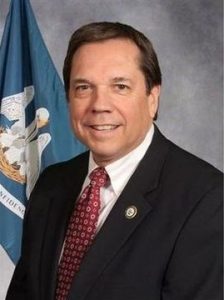 Sen. Rob Shadoin, a republican representing the state’s Ruxton area, announced he will resign his seat in the legislature and take a position with the Louisiana Department of Wildlife and Fisheries.
Sen. Rob Shadoin, a republican representing the state’s Ruxton area, announced he will resign his seat in the legislature and take a position with the Louisiana Department of Wildlife and Fisheries.
Shadoin is currently serving the third year of his second term and is known as a moderate republican lawmaker and consistent ally of Gov. John Bel Edwards.
Once a resignation date has been announced, the state will likely call a special election to fill his seat.
October 4, 2018 •
Wisconsin Legislature to Hold Extraordinary Session
The Wisconsin Legislature plans to call an extraordinary session to allow the Senate to consider a bill authorizing $100 million in tax incentives to prevent paper giant Kimberly-Clark from shutting down. If passed, Assembly Bill 963 would authorize Kimberly-Clark to […]
 The Wisconsin Legislature plans to call an extraordinary session to allow the Senate to consider a bill authorizing $100 million in tax incentives to prevent paper giant Kimberly-Clark from shutting down.
The Wisconsin Legislature plans to call an extraordinary session to allow the Senate to consider a bill authorizing $100 million in tax incentives to prevent paper giant Kimberly-Clark from shutting down.
If passed, Assembly Bill 963 would authorize Kimberly-Clark to claim as income and franchise tax credits a percentage of the business’s eligible payroll for full-time employees.
Gov. Scott Walker said he is fighting to keep hundreds of jobs in Wisconsin. The extraordinary session will be held on Monday, November 12.
October 2, 2018 •
South Dakotans to Vote on Ethics this November
South Dakotans will have multiple ethics-related ballot measures to vote on this November. Constitutional Amendment W, also known as the South Dakota Voter Protection and Anti-Corruption Amendment, would create an independent ethics commission, decrease limits on campaign donations, bar gifts […]
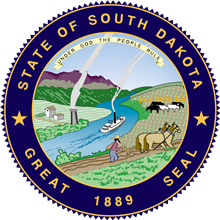 South Dakotans will have multiple ethics-related ballot measures to vote on this November.
South Dakotans will have multiple ethics-related ballot measures to vote on this November.
Constitutional Amendment W, also known as the South Dakota Voter Protection and Anti-Corruption Amendment, would create an independent ethics commission, decrease limits on campaign donations, bar gifts from lobbyists to many public officials, and prevent the Legislature from altering or rejecting laws approved by ballot question without returning to the ballot.
More than 51 percent of voters supported a similar initiative in November 2016, but lawmakers repealed it in early 2017, citing constitutional concerns.
Also on the November ballot, Initiated Measure 24, would prohibit contributions to ballot question committees by non-residents, out-of-state political committees, and entities who have not filed with the secretary of state for the four years prior to making a contribution.
October 2, 2018 •
California Training for Lobbyists Will Now Include Policies Against Sexual Harassment
On September 30, California Gov. Jerry Brown signed a bill requiring lobbyists to complete training on sexual harassment in connection with lobbying activities. Assembly Bill 2055 adds a component to training already required for lobbyists registered with the state and […]
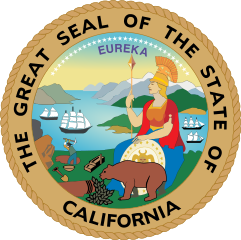 On September 30, California Gov. Jerry Brown signed a bill requiring lobbyists to complete training on sexual harassment in connection with lobbying activities.
On September 30, California Gov. Jerry Brown signed a bill requiring lobbyists to complete training on sexual harassment in connection with lobbying activities.
Assembly Bill 2055 adds a component to training already required for lobbyists registered with the state and conducted by the ethics committees in both houses of the California Legislature.
The lobbyist training course now must include “information on each house of the Legislature’s policies against harassment, including sexual harassment, in connection with lobbying activities.”
September 28, 2018 •
New Jersey Special Election Scheduled
A special election for the Bergen County sheriff will be held on November 6, aligning with the general election. The former sheriff, Michael Saudino, resigned after controversial comments he said in January were made public. The county will send out […]
 A special election for the Bergen County sheriff will be held on November 6, aligning with the general election.
A special election for the Bergen County sheriff will be held on November 6, aligning with the general election.
The former sheriff, Michael Saudino, resigned after controversial comments he said in January were made public.
The county will send out an addendum to the already sent absentee ballots.
September 28, 2018 •
News You Can Use – September 28, 2018
National: For Women on the 2018 Campaign Trail, ‘Sexism’ Is No Longer a Forbidden Word Connecticut Post – Avi Selk (Washington Post) | Published: 9/21/2018 Several women in high-profile national races this year have broken from decades-old conventional wisdom that […]

National:
For Women on the 2018 Campaign Trail, ‘Sexism’ Is No Longer a Forbidden Word
Connecticut Post – Avi Selk (Washington Post) | Published: 9/21/2018
Several women in high-profile national races this year have broken from decades-old conventional wisdom that cautioned female candidates against complaining of sexism, lest they be painted as weak or angry or to being accused of playing what Donald Trump called “the woman card” during his presidential campaign. Celinda Lake, a Democratic pollster, conducted a survey in 2012 that found fears of a backlash against speaking up were unfounded. But not until this cycle – after Trump’s win and the subsequent #MeToo movement to out powerful men accused of sexual assault – has she seen female candidates do so in numbers.
Federal:
‘Can You Do This?’: Russia probe conflicts rampant among Rosenstein replacements
Politico – Darren Samuelsohn and Josh Gerstein | Published: 9/27/2018
President Trump may think he is getting rid of a problem if he pushes Deputy Attorney General Rod Rosenstein out of the Justice Department. But cleaning house will hardly end the president’s headaches from special counsel Robert Mueller’s investigation into Russian election meddling and whether the Trump campaign coordinated with Moscow on its efforts. Several administration appointees in line for Rosenstein’s role overseeing Mueller’s probe come with their own baggage, from direct involvement in the investigation to recent work at law firms with clients mired in the inquiry.
Obama White House Counsel Gregory Craig Under Scrutiny by Prosecutors in Offshoot of Mueller Probe
Washington Post – Tom Hamburger | Published: 9/23/2018
Federal prosecutors have stepped up their investigation of prominent Washington, D.C. attorney Gregory Craig for work he conducted at his former law firm on behalf of the Ukrainian government in 2012, an effort coordinated by Paul Manafort. Craig’s case, and that of two Washington lobbyists who worked with Manafort on Ukrainian matters, were referred to federal prosecutors in New York, who appear to be focused on whether the three failed to register as foreign agents while working with Manafort’s Ukrainian clients. The investigation of Craig, along with lobbyists Vin Weber and Tony Podesta, has shaken K Street’s lobbying and legal community, which until recently had faced little scrutiny of its representation of foreign clients.
Political Nonprofits Seek Answers After Court Decision Targeting ‘Dark Money’
Washington Post – Michelle Ye Hee Lee | Published: 9/21/2018
Nonprofit advocacy groups historically have not been required to publicly disclose their donors, as political committees must. But a federal judge threw out a rule that allowed the groups to withhold donors’ identities, broadening the type of donors who would now be subject to disclosure. The U.S. Supreme Court declined to intervene in the case. The decision will no doubt shed more light on the contributors to politically active nonprofits, although exactly how much is uncertain as groups and federal officials take stock of the decision. In the absence of new regulation, nonprofit groups are left in a gray area, which could lead to new methods of avoiding disclosure and maintaining donor privacy.
From the States and Municipalities:
Alabama: Reform Panel to Vote on Changes to Alabama Ethics Law
AL.com – Mike Cason | Published: 9/20/2018
The Alabama Code of Ethics Clarification and Reform Commission will vote on proposals to amend the state ethics law at its next meeting in October, which will be sent to lawmakers. The Alabama Court of Criminal Appeals recommended the Legislature clarify the definition of a lobbying “principal” in its ruling upholding ethics convictions against former House Speaker Mike Hubbard. The court said it believed the law was applied correctly in Hubbard’s case but could envision other cases where the definition was problematic. The definition is important because the law places restrictions on principals like it does on lobbyists, such as prohibitions on giving money or gifts to public officials.
Florida: NRA Sway: For Florida officials, it’s always Hammer time
Tampa Bay Times – Steve Contorno | Published: 9/21/2018
Those who work in the Florida agency that oversees gun permits never know when National Rifle Association (NRA) lobbyist Marion Hammer will command their attention, or what about. Nights, weekends, and even holidays, she sends messages to senior department officials with complaints and demands. They often respond within minutes. Hammer’s singular power over Florida lawmakers, especially Republicans, is the stuff of Tallahassee legend. Yet according to a review of hundreds of Hammer’s emails with the state Department of Agriculture, her sphere of influence stretches far beyond gun legislation. Emails from 2014 to 2017 show the lobbyist involves herself in a wide array of day-to-day tasks of an agency that was accused five years ago in a lawsuit of being run by the NRA.
Illinois: Cook County OK to Restrict Campaign Cash from Lawyers, Others Seeking ‘Official Action,’ Appeals Court Says
Cook County Report – Jason Bilyk | Published: 9/25/2018
A state appellate court ruled Cook County has the power to make ethics rules that apply to county officers, finding the board of commissioners did not overstep in prohibiting real estate lawyers and others from contributing to the campaigns of county officials when they are seeking “official action” from the county. While the county has for decades used its ethics ordinance to place limits on who can give money to county officials, and how much they can donate to their campaigns, the ordinance was amended in 2016 to extend restrictions which had been applied previously to lobbyists and contractors, now to reach “persons seeking official action from the county.”
Missouri: Clean Missouri Will Be on November Ballot After High Court Refuses to Hear Challenge
Kansas City Star – Alison Kite | Published: 9/24/2018
The Missouri Supreme Court will not reconsider a ruling allowing voters to decide on a ballot measure that would reform the state’s ethics laws. The decision reaffirms a state appeals court ruling letting the so-called Clean Missouri initiative appear on the November ballot as Constitutional Amendment 1. Opponents had claimed the initiative violates the state constitution by addressing too many topics. The measure would lower campaign contribution limits, eliminate nearly all lobbyist gifts, require a waiting period before lawmakers and their staffers can become lobbyists, and open legislative records. It also would turn the task of drawing legislative district maps over to a nonpartisan expert and reviewed by a citizen commission.
New York: Crystal Run Did Raise a Red Flag
WRAL – Chris Bragg (Albany Times Union) | Published: 9/25/2018
In a meeting with The Albany Times Union editorial board, New York Gov. Andrew Cuomo emphatically stated that Crystal Run Healthcare, had never warned his campaign of potential problems with its $400,000 in donations. Moreover, the governor said if the company had done so, Crystal Run would have effectively “admitted to a crime.” But in response to the newspaper’s questions about Cuomo’s statement, his campaign acknowledged what the governor said that day was not true: Crystal Run had indeed approached the campaign with concerns about its contributions. The FBI and the U.S. attorney’s office in Manhattan have been investigating whether 10 separate $25,000 checks from Crystal Run officials to Cuomo in October 2013 were reimbursed by the company through bonuses. If that occurred, it could violate state election law.
New York: Percoco Sentenced to Six Years for Corruption
Albany Times Union – Robert Gavin | Published: 9/20/2018
A judge sentenced Joseph Percoco, a former top aide to New York Gov. Andrew Cuomo, to six years in federal prison for accepting more than $320,000 in bribes from businesspeople looking to buy influence with state. The bulk of the bribes came in the form of a “low-show” job given to Percoco’s wife by an energy company that wanted to build a power plant in the Hudson Valley. While prosecutors did not accuse Cuomo of any wrongdoing, the trial cast a shadow over his administration, especially in light of early campaign promises when he was first elected to clean up Albany.
North Carolina: NC House Speaker Tim Moore’s Legal Contract with Start-Up Raises Questions
Raleigh News and Observer – Dan Kane | Published: 9/25/2018
A short time into Anne Whitaker’s tenure as chief executive officer of KNOW Bio, a pharmaceutical start-up, she learned of a legal services contract given to an attorney she had never heard of for services she felt were of questionable value for a company that was barely a year old. The lawyer was North Carolina House Speaker Tim Moore. When she learned the details of his contract and his work, which struck her as federal lobbying, Whitaker said she terminated it with the support of company board members. Whitaker said KNOW Bio’s co-founder, Neal Hunter, had given Moore the contract. What Whitaker said she did not know is that Moore, as the powerful Rules Committee chairperson, had earlier helped Hunter with a controversial development that was in danger of failing.
Oklahoma: Oklahoma Ethics Commission Hit with Federal Lawsuit Over Gift Rules
The Oklahoman – Nolan Clay | Published: 9/26/2018
The Institute for Justice is asking a federal judge to find Oklahoma’s gift-giving restrictions do not apply to informational materials. Over the last few years, the state Ethics Commission has imposed stricter rules on what lobbyists and the organizations they represent can give to lawmakers and other state officials. Under the current rules, the institute could give a book to a state government official in recognition of a special occasion like election to office if the book costs $100 or less. It also could give a state official a $10 book once a year. In light of those limitations, it is “effectively impossible” for the organization to distribute a copy of the book “Bottleneckers: Gaming the Government for Power and Private Profit,” which is valued at $15, to educate lawmakers, the institute’s attorneys said.
Oklahoma: Oklahoma Supreme Court Rejects Ethics Commission Request for More Money
The Oklahoman – Nolan Clay | Published: 9/25/2018
The Oklahoma Supreme Court rejected the state Ethics Commission’s request for more funding. The commission chairperson has accused legislators of cutting the agency’s appropriation because stricter rules had been imposed on their conduct. The commission asked the justices to take action to get it enough money to perform at least its basic duties. It complained lawmakers have underfunded it for years in violation of the Oklahoma Constitution. To avoid running out of money, the commission is now charging candidates, lobbyists, PACs, and others more to register.
Tennessee: Nashville Judge Rules Against State in Lawsuit Over ‘Blackout Period’ for PACs
The Tennessean – Joey Garrison | Published: 9/27/2018
Davidson County Chancellor Ellen Hobbs Lyle struck down a Tennessee law that prohibits nonpartisan PACs from giving campaign contributions within 10 days of an election. Under the law, only committees controlled by a political party have been able to donate to candidates 10 days out from an election. “Elected officials and political parties cannot lawfully censor disfavored political speakers while reserving special treatment in the political process for themselves,” said Daniel Horwitz, an attorney for Tennesseans for Sensible Election Laws. Deputy Attorney General Janet Kleinfelter said the state intends to appeal the decision.
September 27, 2018 •
Nashville Court Rules Against State Over Contribution Black-Out Period
A judge in Tennessee’s Davidson County Chancery Court ruled against the state today, striking down a law prohibiting political action committees from making contributions to candidates after the 10th day before an election. Under the law, only political party committees […]
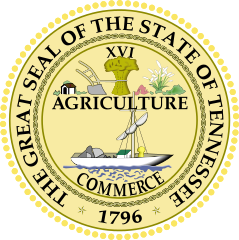 A judge in Tennessee’s Davidson County Chancery Court ruled against the state today, striking down a law prohibiting political action committees from making contributions to candidates after the 10th day before an election. Under the law, only political party committees can contribute to candidates in the 10-day window.
A judge in Tennessee’s Davidson County Chancery Court ruled against the state today, striking down a law prohibiting political action committees from making contributions to candidates after the 10th day before an election. Under the law, only political party committees can contribute to candidates in the 10-day window.
Chancellor Ellen Hobbs Lyle ruled in favor of plaintiff Tennesseans for Sensible Election Laws based on insufficient facts from the state to overcome the plaintiff’s argument.
In asserting the prohibition was an overbroad speech restriction, the plaintiff argued elected officials and political parties were “reserving special treatment in the political process for themselves.”
Attorneys for the state announced their intention to file an appeal immediately.
September 27, 2018 •
Kansas Senator Fitzgerald Resigns
State Senator Steve Fitzgerald resigned from the state Senate on Monday. A convention will be held by Republican precinct committeemen and committeewomen to select someone to fill the vacancy, and the person selected will be officially appointed by the governor. […]
 State Senator Steve Fitzgerald resigned from the state Senate on Monday.
State Senator Steve Fitzgerald resigned from the state Senate on Monday.
A convention will be held by Republican precinct committeemen and committeewomen to select someone to fill the vacancy, and the person selected will be officially appointed by the governor.
The Fifth District includes Leavenworth, Lansing, Piper, and portions of Wyandotte County.
September 27, 2018 •
Los Angeles Unified School District to Hold Special Election
The Los Angeles Unified School District will hold a special election on March 5, 2019, to fill the vacancy for the Board of Education’s District 5 seat. The seat was vacated earlier this year by Ref Rodriguez, who is currently […]
 The Los Angeles Unified School District will hold a special election on March 5, 2019, to fill the vacancy for the Board of Education’s District 5 seat.
The Los Angeles Unified School District will hold a special election on March 5, 2019, to fill the vacancy for the Board of Education’s District 5 seat.
The seat was vacated earlier this year by Ref Rodriguez, who is currently facing felony and misdemeanor charges related to an alleged money laundering scheme.
A special runoff election will be held on May 14, 2019, if no candidate receives a majority of the vote.
September 27, 2018 •
Hillsborough County School District to Hold Special Runoff Election
A special runoff election will be held on November 6 to fill the remainder of Susan Valdes’s term on the Hillsborough County School Board. Her resignation for the District 1 seat is effective in November. Former Hillsborough County School District […]
 A special runoff election will be held on November 6 to fill the remainder of Susan Valdes’s term on the Hillsborough County School Board.
A special runoff election will be held on November 6 to fill the remainder of Susan Valdes’s term on the Hillsborough County School Board.
Her resignation for the District 1 seat is effective in November.
Former Hillsborough County School District administrator Bill Person will face construction industry executive Steve Cona III in the special runoff election.
The winner will complete the remainder of Valdes’s four-year term.
September 27, 2018 •
IL Court Upholds Cook County Campaign Restrictions
The Illinois First District Appellate Court upheld Cook County’s ethics ordinance restricting political contributions from persons seeking official action from the county. Cook County Assessor Joseph Berrios challenged the rule earlier this year after the County Board of Ethics fined […]
 The Illinois First District Appellate Court upheld Cook County’s ethics ordinance restricting political contributions from persons seeking official action from the county.
The Illinois First District Appellate Court upheld Cook County’s ethics ordinance restricting political contributions from persons seeking official action from the county.
Cook County Assessor Joseph Berrios challenged the rule earlier this year after the County Board of Ethics fined Berrios for receiving contributions over the $750 limit.
The court ruled self-funding candidates donating over $100,000 to their own campaign only lifted state contribution limits and did not affect any locally imposed limits set by the county.
September 27, 2018 •
US Senate Joint Resolution Seeks to Reverse IRS Disclosure Exemption for Certain Tax-Exempt Organizations
On September 24, U.S. Senators Jon Tester and Ron Wyden introduced a resolution to reverse a U.S. Treasury Department’s decision limiting IRS disclosure requirements of certain tax-exempt organizations engaging in political activities. On July 16, the U.S. Treasury Department and […]
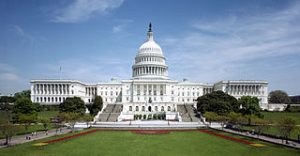 On September 24, U.S. Senators Jon Tester and Ron Wyden introduced a resolution to reverse a U.S. Treasury Department’s decision limiting IRS disclosure requirements of certain tax-exempt organizations engaging in political activities.
On September 24, U.S. Senators Jon Tester and Ron Wyden introduced a resolution to reverse a U.S. Treasury Department’s decision limiting IRS disclosure requirements of certain tax-exempt organizations engaging in political activities.
On July 16, the U.S. Treasury Department and the IRS announced certain tax-exempt organizations are no longer required to report the names and addresses of contributors on their annual reports.
This exemption from reporting applies to tax-exempt organizations generally not receiving tax-deductible contributions, such as the National Rifle Association, labor unions, volunteer fire departments, issue-advocacy groups, local chambers of commerce, veterans’ groups, and community service clubs. These organizations are still required to continue to collect and keep the donor information and to make it available to the IRS upon its request.
This exemption does not affect the information required to be reported by charities primarily receiving tax-deductible contributions, such as 501(c)(3) organizations, certain nonexempt private foundations, or 527 political organizations.
Senate Joint Resolution 64, The Spotlight Act, would overturn the exemption and require disclosure to the IRS of the names and information of donors who contribute more than $5,000.
September 26, 2018 •
Oklahoma Supreme Court Denies Ethics Commission Funding
In a long legal battle, the Oklahoma Ethics Commission lost a battle to receive more funding to carry out its oversight functions. The Legislature appropriates funds to the Ethics Commission, and it complained to the Supreme Court the legislatures have […]
 In a long legal battle, the Oklahoma Ethics Commission lost a battle to receive more funding to carry out its oversight functions.
In a long legal battle, the Oklahoma Ethics Commission lost a battle to receive more funding to carry out its oversight functions.
The Legislature appropriates funds to the Ethics Commission, and it complained to the Supreme Court the legislatures have underfunded it for years in violation of the Constitution.
The court rejected the commission’s complaint 5-4, stating it has money “sufficient to enable it to perform its duties,” which the Constitution says.
State and Federal Communications, Inc. provides research and consulting services for government relations professionals on lobbying laws, procurement lobbying laws, political contribution laws in the United States and Canada. Learn more by visiting stateandfed.com.

